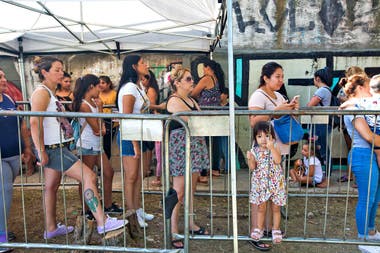Saturated after the second day of preventive isolation ordered by the Government,
unable to see their friends at school and do their favorite activities
Martina, 9, exclaimed with annoyance: “All because of a Chinese man who took bat soup!”
Martina’s case is just one example of
How the current coronavirus pandemic can be seen from the eyes of a child
. Although sometimes we suppose them safe from the enormous amount of information -real or false- that circulates these days through the traditional media and social networks, boys and girls are equally exposed and,
on many occasions, without the appropriate tools to discern all that material without distress
. And although, a priori, their exits and comments may be funny, they are revealing another worrying aspect:
the risk that, without adequate adult mediation, all the information they receive encourages them to build stereotypes and prejudices
.
That is why, in the last hours, Unicef came out to alert for what they consider one of the secondary impacts of the virus:
the anguish, uncertainty, fears and anxiety that this context generates in the youngest
, variable according to age. And he stressed the importance of responsible adults being able to contain them emotionally.
“In this age of overinformation it is essential to talk to the boys.
We must have an open conversation with them but differentiated, according to age
. Although with the older ones you can have a conversation in a more or less traditional way,
with the little ones we will have to look for other more playful alternatives
“he recommends, in dialogue with
THE NATION
, Luisa Brumana, medical epidemiologist and representative of Unicef Argentina, an institution that has just published a guide in this regard: “Coronavirus (COVID-19). What fathers, mothers and educators should know: how to protect sons, daughters and students” .
The aforementioned report, which can be found on its website or
provides material so that adults can truthfully answer the main questions about the virus
: what it is, how it is transmitted, what prevention guidelines are essential, recommendations for pregnant women, during lactation and when traveling. It also includes clues on how to pass this information on to children.
“We suggest: listen to them.
It is very important to invite them to speak and to know what their concerns are.
“adds Brumana, who emphasizes that the current social climate in which we are immersed, and which includes the alteration of numerous daily routines, generates a lot of uncertainty for the children.
”
We ask the private and public sectors for special flexibility in the way parents, caregivers and adults work, so that they can accompany children and adolescents at this time.
, in their homes, in the emotional support that the little ones need and in the continuity of their studies, those who are in school, “said the specialist.

As explained in the guide,
early childhood is a pivotal moment in development to lay the foundation for self-protection skills
that will allow boys and girls to be responsible for their health and that of other people throughout their lives. In the current context of a pandemic,
it is important to influence simple protection and hygiene behaviors
such as covering your cough and sneezing with your elbow and washing your hands frequently.
The adult presence that functions as an information sieve also has other benefits geared towards
avoid building prejudice and stigmatization
. In this sense, the report points out: “Sometimes, no matter how hard we try to deal adequately and sensitively with these issues in the classroom or with the family, we cannot prevent conversations between boys and girls becoming a ‘broken phone’ .
Despite the fact that it is understandable and that, at very young ages, there is not really malice in the comments, it is very necessary to redirect the misperceptions
that they may be forming on certain people or groups, to avoid that, over time, they become something more serious “.
RECOMMENDATIONS TO CONTAIN BOYS AND GIRLS FROM 0 TO 6 YEARS OLD:
- Prevent them from seeing or hearing news with a sensationalistic or morbid approach.
- Avoid being exposed to news about the problem for a long time, even if the treatment is adequate: the time we spend on a topic can also cause concern, even if the tone is not alarmist.
- Avoid involving them in adult conversations about the situation: even if we are not talking to them, they know what we are talking about and draw their conclusions.
- Spend time talking about your doubts and concerns, in a language adapted to your understanding, but not misleading.
- Teach healthy habits like washing hands with soap and water.
- Teach hygienic measures that protect others, for example: the use of handkerchiefs and napkins, avoid sharing cutlery and glasses.
RECOMMENDATIONS FOR CONTAINING ADOLESCENTS
- Listen to your concerns, answer your questions, add your proposals to mitigate risks.
- Avoid excessive exposure to news on the internet and in audiovisual media. Discuss the effects of oversaturation and fake news.
- Note that they can take many steps in daily life to mitigate risks for themselves and others, such as stopping sharing mate.
- Contain the different emotional reactions that they can express and explain that they are normal reactions to an abnormal situation.
- Encourage them to express and communicate their feelings.
- Avoid spending all day connected to the screens: propose new routines to ensure study time and physical activity.
FURTHER
.
Publicado en el diario La Nación




